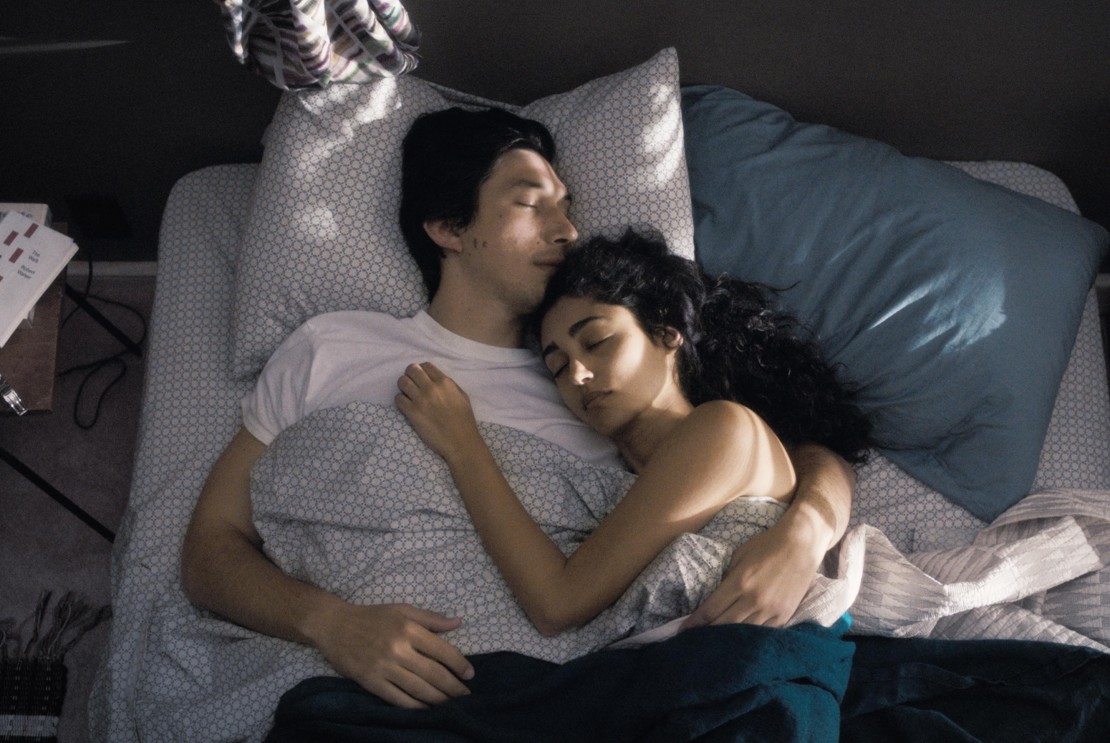Nobody: Every night and every morn, some to misery are born. Every morn and every night, some are born to sweet delight. Some are born to sweet delight; some are born to endless night.
~ Dead Man (Jim Jarmusch, 1995)
Eve: I’m sure she’ll be very famous.
Adam: God, I hope not. She’s way too good for that.~ Only Lovers Left Alive (Jim Jarmusch, 2013)
I haven’t been able to stop thinking about Paterson since I saw it at the Toronto International Film Festival in September. This is not an unusual affliction for a Jim Jarmusch film, as the idiosyncratic milieus of Down By Law, Dead Man, Only Lovers Left Alive, and others linger on the mind long after the final credits roll. Often, I find myself liking his movies at the time of viewing, before eventually realizing I love them after days of reflection. Paterson, however, was love at first sight.
Adam Driver is the Paterson in question, which also happens to be the name of the New Jersey town in which he works full-time as a bus driver. The film is built around a week-in-the-life of Paterson and his daily routine: early mornings spent waking next to his wife Laura (Golshifteh Farahani), days spent listening in on the conversations and various goings-on of the Paterson denizens who ride his bus, and nights spent walking his dog Marvin to the local bar for a pint. In between is poetry. Jotting down stanzas and rough passages in his ever-present notebook, Paterson is a poet working in the same vein as his favorite scribe William Carlos Williams, another New Jersey poet who wrote a book-length epic about Paterson’s hometown.
Jarmusch’s work has often been characterized as “cool” in an emotionally distant veneer of hipness, with 2013’s Only Lovers Left Alive coming as sort of a distillation of this mode down to its purest form: literal vampires who find themselves out-of-step with the modern world of mortal men. Paterson ditches the alienation of “coolness,” and warmly sinks into the inner life of its protagonist, as his sidelong observations take shape in his writings (which appear onscreen in cursive script) over the course of the film. The distinctive illustration on a box of matches forms the opening lines of one poem. Metaphysical musings on the space taken up by his bus route structure another. A stray evocative image from a dream as described by his wife pops into the conscious world on the periphery of Paterson’s daily observations. In this way, Paterson is a procedural of the creative process.
Paterson is also the best love story of the year, of two different varieties. The central relationship between Driver (an actor so compelling, he can make opening a mailbox seem like the stuff of epic poetry) and Farahani’s Laura unassumingly forms the film’s emotional backbone. It’s grand love in the sense that it appears unconditionally supportive, but functions best when the pair challenge each other. Though Laura pushes Paterson to find an audience for his poetry, and Paterson quietly, though sometimes begrudgingly, indulges his wife’s many artistic and culinary fancies, their mutual respect for the other’s differences bolsters their respective ways of seeing the world.
The other love is the one between Paterson and his quotidian life. It’s not a journey to achieve the life of one’s dreams, but one of realization that perhaps the life you have is the one that already makes you happy. A lesser film would find life in Paterson, New Jersey a stifling slog, a prison of creative fulfillment. Instead, Jarmusch takes to heart the words of another poet, William Blake, once referenced in Dead Man: “Every night and every morn, some to misery are born. Every morn and every night, some are born to sweet delight.” Every morn and every night, Paterson is content, with the gift of being able to “see a world in grain of sand and a heaven in a wildflower.” Besides that, as Only Lovers Left Alive’s Adam might portend, he’s too good to be famous. Where some find misery, Paterson sees only poetry.

















